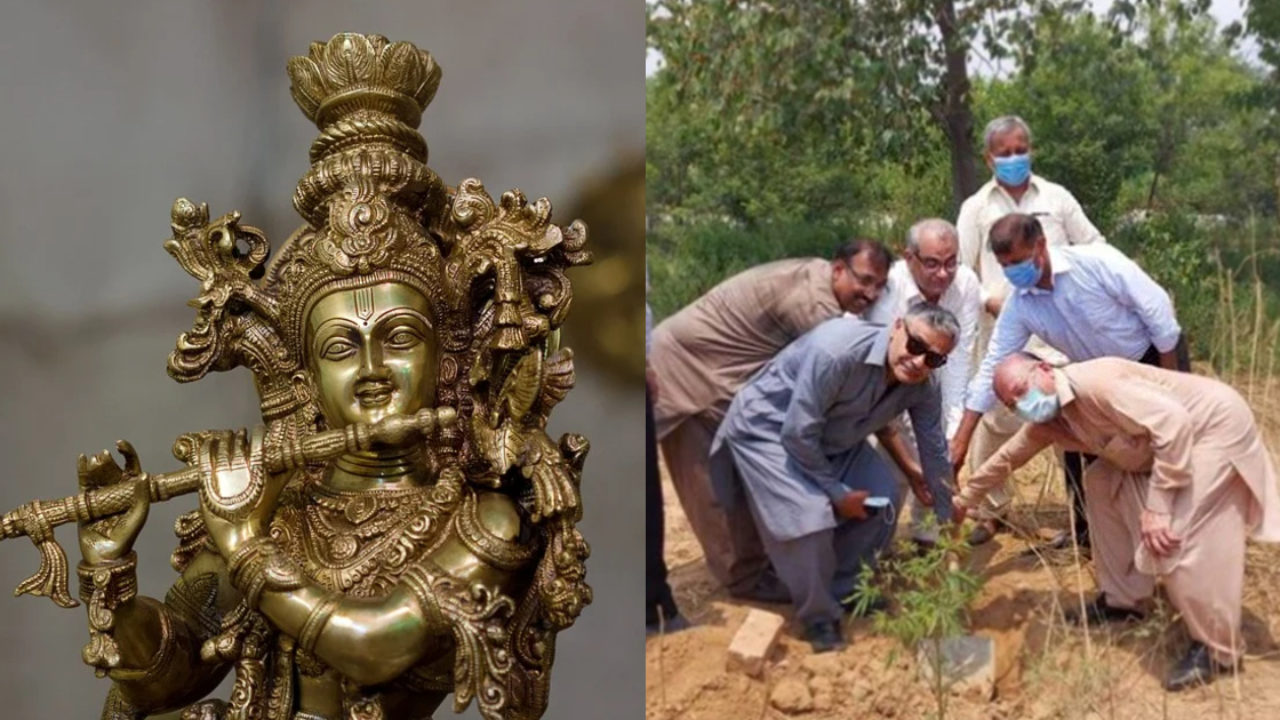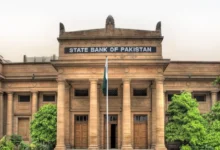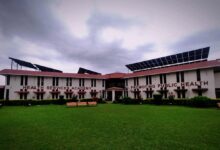Hindu community hopeful for construction of Shri Krishna temple despite obstacles

Islamabad: The federal capital has around 800 Hindu residents, according to official documents obtained by The Reporters through a Right to Information request. However, the city does not have a single proper site where they can celebrate religious events, such as Holi and Diwali, hold marriage ceremonies or even observe funeral rites.
“Since independence, we are facing difficulties in performing our religious activities, especially mourning ceremonies in Islamabad as we do not have any operational crematorium here in the city,” Ajay Krishna, told The Reporters.
Ajay further added that due to lack of resources in an operational temple in the capital, they are required to apply for the death certificate and then transport the dead body via airplane or private vehicle to Sindh to observe funeral rituals.
According to a report published in News Track India, Hindu religion has the custom of burning the dead body; however, in Pakistan many Hindus are compelled to bury their deceased relatives due to lack of crematorium facilities.
Dr Ashok Kumar – president of Hindu Panchayat – while replying to the question related to burying the dead bodies, he totally refused as Hindu community always follow their customs and perform the proper religious rituals.
There are two temples in Islamabad (one in Said Pur Village and another in Shah Allah Dita) for the Hindu community; however, both the temples were abandoned decades ago. After lots of efforts by the community and on the direction of the Human Rights Commission of Pakistan, the CDA after consultation with the Ministry of Religious Affairs, Special Branch and the Islamabad administration had allotted the four kanals of land to the community in 2017.
CDA had allotted 3.89 kanals of land at sector H-9/2 in Islamabad to Hindu community in 2017, and handed over to the Hindu Panchayat in 2018 for the construction of the first Hindu temple, crematorium (Shamshan Ghat) and a community center.
Plans for the Shri Krishna temple on a 20,000 square feet site in Islamabad include Hindu crematorium, a community hall for the city’s minority Hindu residents and visitors.
However, construction work of the temple is yet to be initiated although the federal government had approved a grant of Rs 100 million for the construction of the building.
“We raised funds and started construction as water boring was almost complete when a mob of people attacked the site,” Ajay recounted.
A Lahore based Islamic institution, the Jamia Ashrafia, issued a fatwa against the construction of the temple, declaring it as a “non-permissible” act under Islam, and a group of influential Islamic clerics said there would be a “severe reaction” if the temple went ahead.
Amnesty International advised Pakistan to continue with the project in Islamabad. In a statement Amnesty International stated: “Halting the construction of a Hindu temple in Islamabad is an unconscionable act of bigotry that must be reversed immediately. Everyone has a right to freedom of religion or belief, a right that is guaranteed in Pakistan’s constitution and its international obligations.”
“Government approved funds and we instantly started work on a boundary wall around the land and the land is safe although many extremist groups came forward just to spoil the religious harmony of our country,” Lal Chand – former PTI MNA and Parliamentary Secretary on Human Rights – told The Reporters. In response to a question regarding security of Hindu community and threats they were receiving, Lal Chand says they had contacted the local administration many time and forwarded applications to ensure the safety and security of our Hindu community.
“I am hopeful, sooner or later we will show the world that religious minorities have the same rights in Pakistan in the form of this temple. All the political parties are on the same page regarding this issue. We all are supporting each other,” Lal Chand said.
“We are their representatives and will not allow anyone to use religion for creating any mess between the religious groups. I know our Hindu community is under threat because some extremists want to create anarchy in our country. This temple will glorify soon in our capital city Islamabad,” Lal Chand further added.
For years, Hindus in Islamabad have been wishing and pushing for a proper place to worship and to cremate their dead, rather than travelling hundreds of miles to perform last rites, Ashok Kumar expresses.
“A temple situated at Said Pur and Shah Allah Dita are turned only into tourist places as the local administration do not allow us to pray in these temples. We usually visit a temple in Rawalpindi; however, there also we do not have any community center and crematorium,” Ajay further added.
Quaid-e-Azam himself had promised the minorities for their freedom of worship when he said, “You are free; you are free to go to your temples, you are free to go to your mosques or to any other place or worship in this State of Pakistan. You may belong to any religion or caste or creed – that has nothing to do with the business of the State.”
The maltreatment with religious minorities is damaging the Pakistan’s image at international level, as evident from Pakistan’s placement in the CPC (Country of Particular Concern) category by the USCIRF (United States Commission on International Religious Freedom) in its annual report.
Since Pakistan came into being, no Hindu temple has been constructed in Islamabad until date. Hindus are the second largest community in Pakistan and unfortunately feel unsafe and neglected as a minority. This allocation of land and funds was the first ever taken step by the government for the religious minority.






